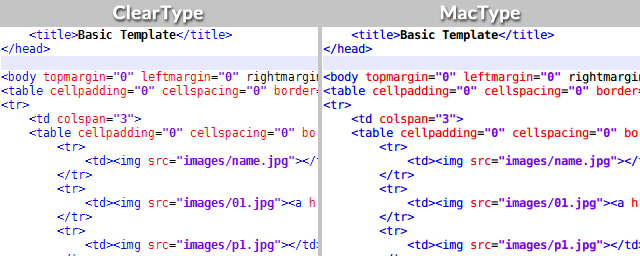

Though Google is still considered top dog in the search engine world, plenty of alternative search providers vie for your traffic and usage.
Everyone jokes about how Bing is just a Google impostor and that Yahoo! is abandoned, but it’s time to move past the stereotypes and see what these search engines can really do. Let’s compare the features of the biggest ones and see which ones are best for what and for whom.
Google is the search engine many look to for their needs — after all, “Googling” isn’t a verb in the dictionary for nothing — and they offer a great blend of being easy to use while still offering cool advanced tricks. It’s also the only place you’ll find tools like reverse image search and voice searching.
Google’s search capabilities are still second to none, and offer personalized results if you’re signed into a Google account. This means, for instance, you can search for “Bob Smith” and Google will show you the contact information for that person from your phone, among other personal searches.
However, it also involves the slightly darker side of Google: tracking you for more personalized results.
Through your account and what you search for, Google figures out your preferences and tailors your searches based on the profile it has of you. For example, searching for “guns” will bring up quite different results based on your thoughts on gun-related topics.
Or, if you frequently visit MakeUseOf.com, for example, Google is more likely to show you results from MUO when you search for “Spotify Tips”.
Whether you consider this a useful feature or an invasion of privacy depends on your own philosophy, and will have a large impact on whether you want to use Google. You can shut off personalized results or refuse to use an account to avoid some of this, but Google really shines when you use all of its services together.
If you’re invested in the Android ecosystem, Google becomes even better. Part of what makes Google so useful is how ubiquitous it is — searches from your phone can be viewed on your desktop, and all of the services interact really well.
Keeping your notes in Google Keep, watching videos on YouTube, having your contacts in Google Contacts, and keeping a Google Calendar means that you have everything all in one place. Plus, it can all be accessed from Google’s main search page.
Overall, if you want your search engine to “just work,” need the powerful search operators, or are invested in several Google services, Google is probably the search engine for you. However, if you’ve been using Google for years and haven’t given any other services a thought, I encourage you to read on and try something different, just for the sake of experience.
Bing has grown from being joke fodder into a great search engine that everyone should give a second look, especially if you haven’t tried it in a while.
The first big thing that jumps out at you with Bing is how much is on the main screen. While Google adopts a minimalist approach by having only their logo and a search box, Bing features a new background image each day and a strip of trending news along the bottom.
If you find Google a bit Spartan, Bing is worth seeing for this alone.
In terms of search, Bing should be familiar to anyone used to Google. In fact, Microsoft’s Bing It On site claims that most people prefer Bing when they blindly compare the two side-by-side. This will be up to your preference, of course, but it is amazing how closely they’ve gotten Bing to Google.
A search for a single word brings up a box with its definition, related people in a box on the right side, related searches, and images related to the search. If you’re looking for a lot of info about something, Bing gives it to you all at once.
Also, you can’t mention Bing without talking about Bing Rewards, Microsoft’s reward service for using their search engine. The first 30 searches you do in a day will earn you 15 points (one for every two searches), and there are also daily “recommended searches” that can earn you extra points.
You can also install the Bing app on your mobile device and earn even more points per day.
It takes a while, but Rewards can earn you some nice prizes. Generally, you need 525 credits to earn a $5 gift card (475 points if you advance to a free Gold account) and gift cards are available for places like Amazon, Starbucks, and even GameStop.
You can also spend credits to enter sweepstakes, buy Xbox Live memberships, or even donate to charity. You won’t be making thousands per month or anything, but it’s a nice bonus for searches you were going to do already.
Bing doesn’t overtake Google in many places, but video searches are one of them. While Google gives you a list of titles, Bing provides a grid of thumbnails that are much easier to browse. In addition, you can watch videos right from the Bing results page, so you don’t have to navigate out to another site. If you watch a lot of videos (especially if you want to search places other than YouTube), Bing video search is definitely for you.
Bing’s search is just fine for finding common, basic items, but it does pale to Google when looking for specific issues. Many people report poor results when trying to find specific troubleshooting help (especially on forums) on Bing, while Google does a better job of searching through a site’s text and finding the answers to your problems.
Thus, if you want to make the switch, try using Bing as your basic search engine, and pull out Google for in-depth searches when you need something specific.
I’d recommend anyone try Bing, if nothing else just to break away from Google for a bit. The rewards program is a nice bonus, and you might be pleasantly surprised with Bing‘s context boxes for most searches.
Google is still the better service, but to be fair, they’ve also had years to learn about what you search for. (Can you remember when you started using Google?) It’s not fair to expect Bing to be as good at tailoring searches to you when you’ve only used it for a few weeks. Given this handicap, Bing is actually pretty decent.
Our own Justin Pot, a huge Google fan, wrote about why he switched to DuckDuckGo, and he’s not alone. Interest in DuckDuckGo (DDG), the privacy-focused search engine, has sparked recently.
Whether people come for the lack of tracking or the unique features, DuckDuckGo seems to be the cool new thing. That being said, it isn’t completely unlike Google, as you’ll still find Instant Answers and other familiar features.
Justin talked a lot about what makes DDG great in his article, so I won’t be redundant. One big highlight, however, it that you can use bangs (!w is Wikipedia, !g is Google, for example) to search any website in one line.
So if you want to search Wikipedia for “pizza,” you don’t have to search for “Wikipedia” and then search on the page. Just type “!w pizza” and DDG will search Wikipedia for your term. It saves a ton of time, and once you get used to it you can search anywhere without leaving DuckDuckGo.
Google tries to be everything to everybody. Justin praised DuckDuckGo for instead letting users decide how they want to use it via settings. If you prefer taking some time to learn the tricks of a search engine instead of expecting it to do everything for you, give DDG a try.
Those with big concerns about privacy should definitely use it, since they don’t track your searches or build a profile around you.
Just like Bing, using DuckDuckGo will give you different results, which is a good thing. Escaping the bubble Google puts you in lets you see new sides of the Internet. Try DuckDuckGo for a week and see what you think.
Yahoo! search has fallen out of favor recently due to a lack of innovation, but it’s still worth a quick look. It’s worth noting that since 2009, Yahoo! search has actually been powered by Bing, meaning that it doesn’t have its own algorithms.
Yahoo used to be the leading search engineer, then Google took over, so much so, we now say 'Google it'. Note: Stay inventing, stay current.
— Faith Child (@FaithChildMusic) November 30, 2015
Aside from basically being a wrapper around Bing, Yahoo! search is nothing special. It has a ton of ads compared to Bing that make it feel almost spammy. There’s really no reason to use Yahoo! search over Bing (or Google or DuckDuckGo), but the company does have a few other features.
If you miss iGoogle, Yahoo! will almost certainly appease you. Yahoo!’s homepage has news, sports info, and links to all of their services that make up almost anything you could want to do online. This works even better if you use Yahoo! for email, but it does mean that you have to change pages to use another search engine.
Seriously, though, what is Yahoo's core business? Email? Banner ads? Search (kind of)? Original content? Aggregated content? Inertia?
— Tom Krazit (@tomkrazit) December 2, 2015
Yahoo! Answers is still around. Here you can browse questions dating back several years on a variety of topics, or ask a question to get some help yourself. It’s not a particular reason to use Yahoo! search, though.
Overall, there’s really no reason to use Yahoo! search. The site offers a lot, but the search engine is nothing special. If you don’t want Google, Bing, or DuckDuckGo as your homepage Yahoo! is worth a try, but don’t even bother with its search. It’s Bing with fewer features and more ads.
Ask.com, formerly Ask Jeeves, is a search engine that once focused on question-and-answer format work, similar to Yahoo! answers. Its search engine took a huge dive in 2010 due to failing to compete with Google, and is now outsourced to an unknown company.
The main Ask page features a search bar and several categories of questions below. The search, like Yahoo!, is nothing special and is littered with ads. Ask includes basic image, video, and news searches, but they’re nothing compared to the others discussed above.
Even the search results themselves are kind of ugly, with no thumbnails or distinguishing features. The only unique feature of Ask search is the Q&A on the right side of the screen, but it gets questions that are only vaguely related to your search term, so it’s not terribly useful.
As if we needed another reason to despise @java – the ASK toolbar was first, now they're pushing this crap. pic.twitter.com/uZbF52pCbm
— Rob Coote (@Rob_Coote) December 1, 2015
The Ask Q&A center is okay; nothing you wouldn’t be able to find somewhere else on the Web. I couldn’t find anywhere to ask new questions, so I assume it’s only meant to be browsed for reference and not used as a forum.
Ask is most synonymous these days with the browser-hijacking Ask toolbar (be sure to remove it if it’s still glued to your browser). Ask search is pretty lame, and like Yahoo!, offers no real reasons to use it. You’re better off with any of Google, Bing, or DuckDuckGo than Ask.
So the Big Three come out on top, after all. We’ve seen that there’s no good reason to use Yahoo! or Ask, so it comes down to Google, Bing, and DuckDuckGo. As a general recommendation:
Really, you can’t go wrong with any of the three. Yes, Google is still technically the king of search, but Bing and DDG offer convincing reasons to switch away from Google — maybe even permanently. Try out one of the other two for a week and see what you think; it’s easy to change your default search engine!
Want to explore even more? Check out lesser-known search engines.
Which search engine will you be using? Why do you use the one you’ve chosen? I want to hear your thoughts on the matter, so let me know what you’ve tried!
Image Credits:competitors struggling by Diego Schtutman via Shutterstock



